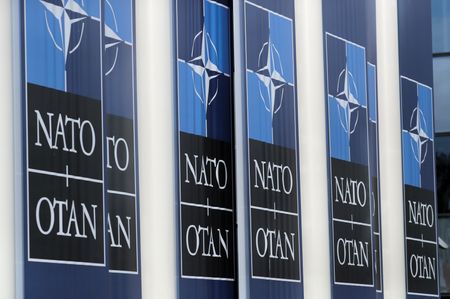By Maria Martinez
BERLIN (Reuters) -Germany met NATO’s target to spend 2% of its gross domestic product on defence in 2024, the government said on Monday, though well short of incoming U.S. President Donald Trump’s call for as much as 5%.
Under Chancellor Olaf Scholz’s centre-left government, Germany has ramped up military spending since Russia’s full-scale invasion of Ukraine in 2022, both to supply weapons to Kyiv and revamp its own armed forces.
But Germany, Europe’s largest economy, has grappled with budgetary constraints, clouding prospects for further longer-term military funding commitments.
Trump, who was to be inaugurated as president later on Monday, recently said members of the NATO military alliance should even spend 5% of GDP on defence – which would be a huge increase from the current goal and a level that no NATO country, including the United States, currently reaches.
Trump cut defence funding to NATO during the latter part of his first term in 2017-21, and has frequently complained that the U.S. is paying more than its fair share.
He has vowed to ask Europe to reimburse the U.S. for “almost $200 billion” in munitions sent to Ukraine, and has not committed to sending further aid to Kyiv.
Reuters earlier cited German finance ministry sources as saying Germany met the NATO target last year.
The NATO quota will be met, even though 4.3 billion euros of the funds available in 2024 were not used, a Defence Ministry spokesperson said on Monday.
In total, 90.8 billion euros had been available, which would have corresponded to a NATO quota of 2.1% of economic output.
Details on all expenses that were counted towards the NATO goal will be published in February, finance ministry sources said.
Days after Russia’s 2022 invasion of Ukraine, Scholz announced a “Zeitenwende” – German for a historic turning point – with a 100-billion-euro special fund to modernise the German military.
That fund will run out in 2028 and a total of 80 billion euros will be needed to comply with NATO’s target of spending 2% of GDP on defence – a huge leap from the 2025 draft budget, which proposed regular defence spending of 53 billion euros.
TROUBLED 2025 BUDGET
The finance ministry on Monday presented preliminary results of the 2024 budget that showed Germany finished the year with a reserve of 10.7 billion euros, but this will not bring additional fiscal room for this year’s budget.
“The preliminary annual financial statement presented today shows we were able to fully preserve the reserves without a supplementary budget for 2024,” Finance Minister Joerg Kukies said.
When the country’s three-way coalition fell apart late last year, the opposition Christian Democrats (CDU) and the Free Democrats (FDP) rejected the government’s supplementary budget for 2024, which had been due to pass parliament in November.
“However, the preliminary financial statement for 2024 does not provide us with any new leeway for the preparation of the 2025 federal budget,” Kukies added.
This is because even if the German government now has 10.7 billion euros in unused funds, the budget gap for 2025 is at 16 billion euros, Kukies said in Brussels, up from the 13 billion euros cited by his predecessor Christian Lindner.
(Reporting by Maria Martinez, Holger Hansen and Andreas Rinke; editing by Matthias Williams, Ludwig Burger and Mark Heinrich)









